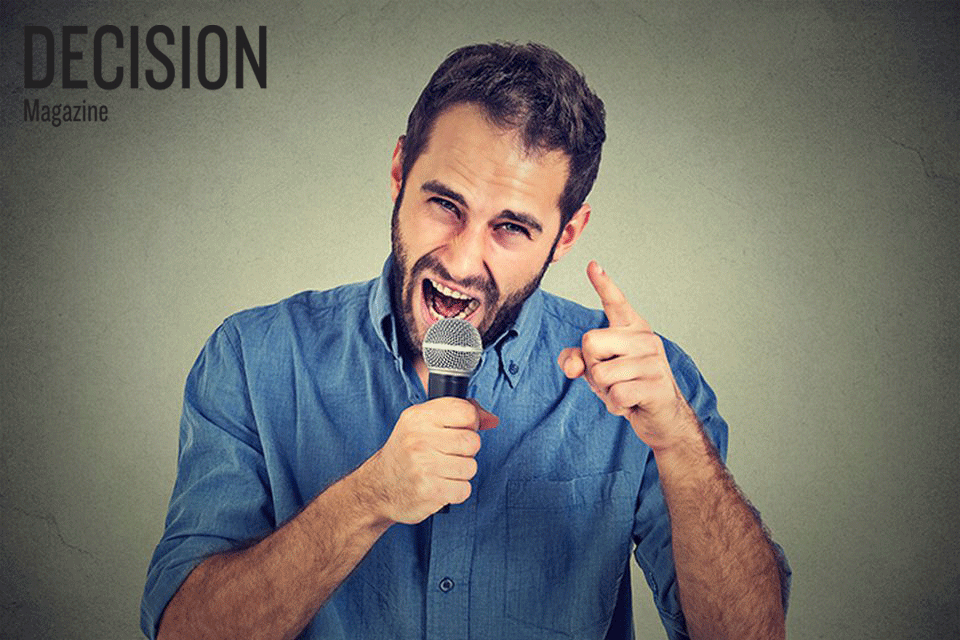
Increasingly, secular progressive activists—who often hound social conservatives in America—are running amok in Europe, shutting down the public voices of those with a Christian worldview—and using the full force of the law as their night stick.
Subscribe to Decision
Get your own subscription, or renewal, or bless someone by giving Decision Magazine as a gift.
SUBSCRIBE NOW
In the United Kingdom, as the culture tries to manage the palpable threat of Islamic extremism, the government announced May 18 that it would seek new laws aimed at curbing the ability of radical imams to preach hate and violence. But some observers believe those laws could also be turned on Christian churches and pastors, who are already scrutinized because of European Union restrictions on religious expression.
“Today, the hundreds of speech restrictions across Europe are doing nothing to counter the undisputed rise in ‘popularism,’ extremism and nationalism,” said Paul Coleman, deputy director of Alliance Defending Freedom International and author of the book Censored: How European “Hate Speech” Laws Are Threatening Freedom of Speech. “On the contrary, they are driving hatred and extremism underground. Criminalizing speech causes more tension and aggravation than it actually alleviates.”
A few examples, according to Coleman:
- In Germany, committing an “insult” is a crime.
- In Poland, offending “religious feelings” could result in two years in prison.
- In Cyprus, anyone found guilty of promoting “feelings of ill will” may be committing a crime.
- In Sweden, showing “contempt” toward a group of people may carry a prison term.
“Europe’s free speech situation grows worse by the year as more ‘hate speech’ laws are passed and restrictions move from the criminal law into all aspects of life, including university speech codes, workplace codes of conduct and Internet rules,” Coleman continued. “Once the shrinking dictionary begins, there is no logical stopping point.”
Even in France, where free expression has been the norm, there is a growing chill on free speech.
In Bordeaux, France, on May 25, two evangelical Christians who are brothers were acquitted of “hate crimes” charges for distributing a pamphlet that included a man’s testimony of conversion to Christ and abandoning homosexuality. Their case is thought to be the first time Christians have faced such charges in France. Even with their acquittal, “a criminal sanction for simply passing out literature in which a person tells his own story will have a dramatic chilling effect on the rights of Christians to speak a politically unpopular truth,” predicted the brothers’ attorney, Nicolas Duval of ADF International.
In the U.K., evangelicals such as Simon McCrossan, head of public policy for the Evangelical Alliance, worry that the new push for anti-hate speech laws—in the name of championing “British values” and aimed at silencing Islamist preachers—may also have detrimental consequences for Christian free speech.
“It’s right that the government act decisively to address issues of terrorism and radicalization,” McCrossan said. But, “this should not be an excuse to clamp down on free speech and religious freedom. We are privileged to live in a plural society where we all get to play our part.”
Related to that, the government of Wales is proposing registration and inspection of religious schools and churches to evaluate if they are complying with “fundamental values”—an option Welsh evangelicals call highly intrusive and “an unwarranted incursion into private religion and family life.”
Cases of religious repression in Europe—which have typically involved controversy over the truth claims of Christianity versus other religious viewpoints, or public statements concerning Biblical sexuality—are much more numerous than in Canada. Yet Canada has also grown chillier to religious expression in recent decades.
The country is governed by one national criminal code, with each province having its own human rights code for lesser offenses. Though it is conceivable that a Christian preacher could be charged with breaking the national criminal code by his speech, it has never happened, said Janet Epp-Buckingham, a lawyer and professor of political studies and history at Laurentian Leadership Centre in Ottawa, Ontario, and a religious freedom expert.
“In Canada it is a criminal offense to communicate statements in a public place, including a church, that incite hatred and where the incitement is likely to lead to a breach of the peace,” explained Epp-Buckingham.
It is much more likely, she said, that someone would be charged with a speech-related violation by breaking a law in one of the provinces, which would involve a fine instead of jail time.
The more problematic issue in Canada, Epp-Buckingham said, is the right of students in both lower schools and colleges to have so-called “safe spaces” where ethnic or sexual minorities can be shielded from anything that could be construed as criticism.
“I know of instances where students both at the university level and the high school level have tried to open up debate in a free speech venue, and they quickly get shut down because somebody gets offended. And so there is a lot of pressure on teachers and university professors not to allow real debate on issues, even when it is respectful debate.”
Americans generally relish the First Amendment’s guarantees of free speech and religious freedom, but the survival of liberty requires vigilance, says Travis Weber, director of the Center for Religious Liberty at the Family Research Council.
“While free speech law in the United States is relatively stronger than that of Canada or Western Europe, we can’t relax our vigilance,” he said. “Law is perpetually only several steps behind culture, and as our prevailing cultural norms increasingly demand only ‘correct speech’ be permitted, the law won’t be far behind. This should concern Christians who wish to speak freely on a number of issues—including the threat of radical Islam, and our beliefs regarding sexuality.” ©2016 BGEA
Give To Where Most Needed
